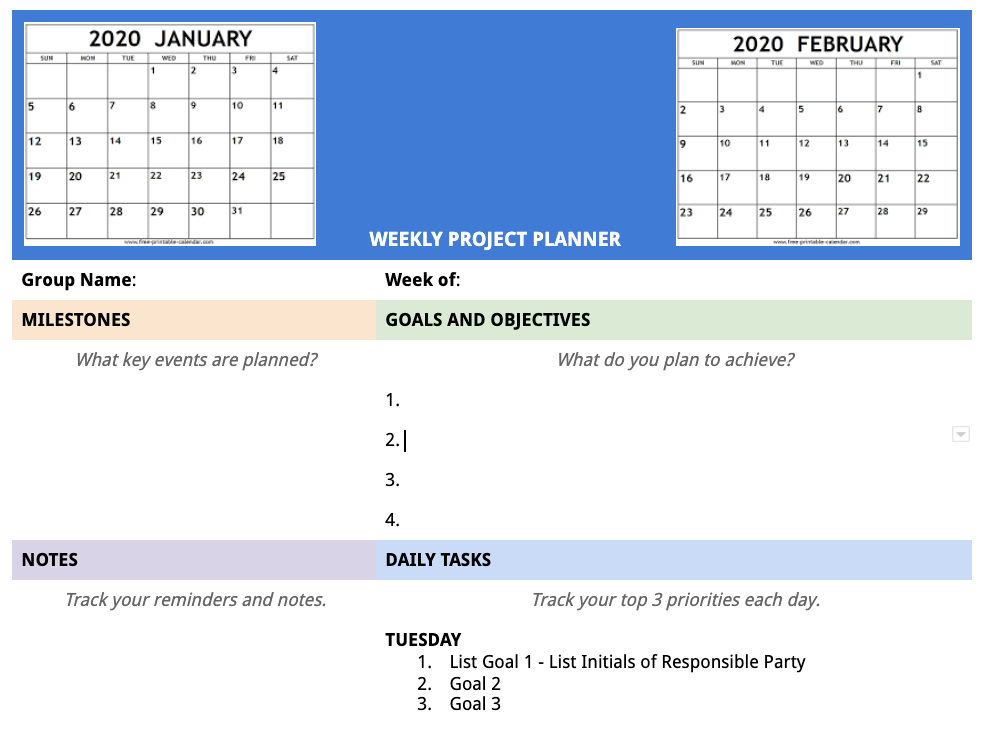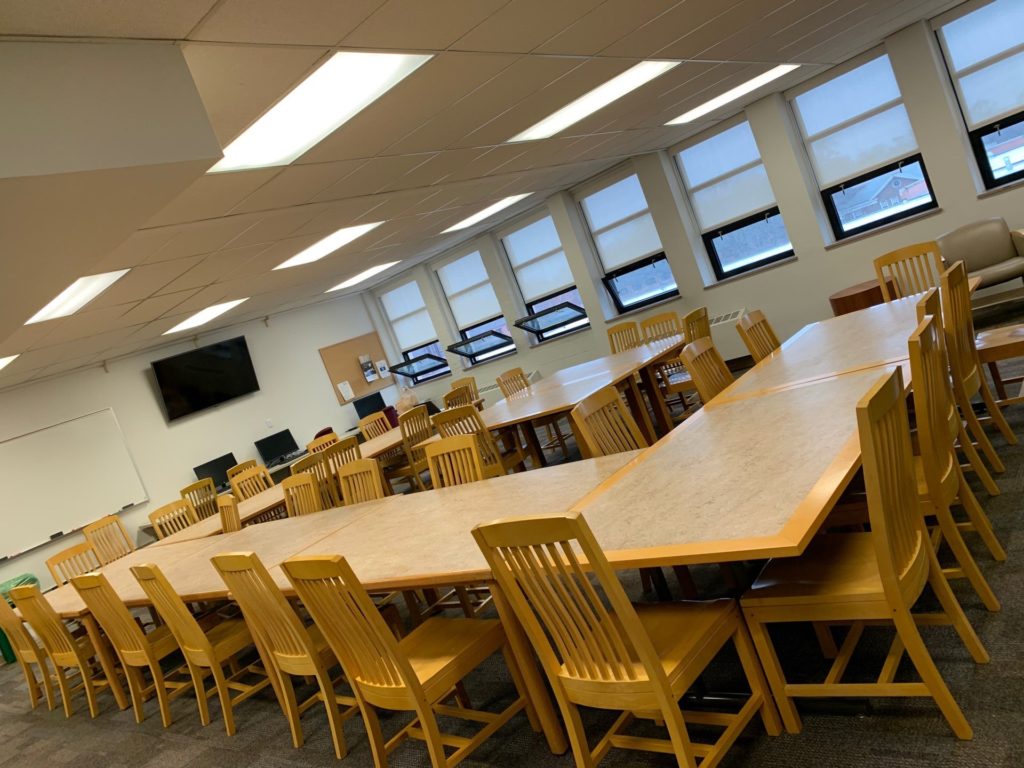-
27
Mar

Like a bazillion other people last week, I participated in a Zoom meeting with my work colleagues. It went fine, even for the less tech savvy in our crowd. WHY HAVEN’T WE BEEN DOING THIS FOR YEARS? As a result, I plan to cut the number of actual F2F meetings I attend from here on out in half. There is no reason to try to find a physical space and common time between a decent number of people when we can just Zoom. If some people want to meet together, so be it. But requiring physical bodies in physical spaces at the same time for routine informational meetings has always seemed ridiculous to me, even more so since the COVID-19 cultural event.
I have really digressed from my reason for writing with that rant, but I feel better and I think I’m ready to roll now.
One thing I noticed as a reoccurring theme in my department meeting last week was faculty who were struggling to know how they could keep students moving on larger class projects with no physical presence to check in, assess how students were progressing with their work and provide feedback. While this is certainly a difficult task to manage with 100+ college students when you see them a few times a week, it seemed to be a challenge many of my colleagues were facing and concerned about in our rapid transition to online learning.
As a result, I shared a Google Doc Weekly Project Planner template I had been using in a few of my classes. This is a shared document that I ask students complete at the beginning of each week to set manageable goals for the week, think through the process of what needs done, assign accountability measures and communicate that back to me. Sometimes it is an individual plan, other times a group plan.
Let’s face it, while many college students may be organized, that doesn’t mean they know how to manage their time. Sure we give them planners, they maybe fill them out, we post due dates in our LMS and syllabi, send email reminders, we teach them how to use Outlook and Google Calendar, etc… but does all of that really help them learn to manage their time?
This is something I really started to notice early this semester in my F2F 300-level methods courses, which tend to be more inquiry oriented project-based learning. Great kids. Good students. Most of them organized and certainly on top of “how many points do I have,” but not necessarily great managers of their time. In informal conversations a lot of them would gripe about how much they had going on, how stressed they were, and a litany of other complaints/excuses we all get.
I’m empathetic to the issues my students are facing and flexible in my approach to assignments, due dates and showing what you know. In fact, I was devoting a substantial portion of my class in order to provide time for them to work on their projects. The problem was, when the time came for their project work, they would mainly digress into conversation and general silliness. Now, I’m certainly game for this. I may be the silliest one of them all, but I also need them to do high-level work. That’s why I developed the Weekly Project Planner–to scaffold their organization skills, force them to consider time management, provide accountability–but I still wasn’t satisfied, even though my students would deliver high-level work when the time arrived.
I thought about it a lot after every class while we were meeting F2F the first half of the semester.
- “How can I make our time together better?”
- “They are goofing off too much and you are instigating.”
After our Zoom education department meeting last week, it finally came to me. Our time together couldn’t be better. It was the best.
When I thought back to my F2F class sessions, I finally realized what I’d been missing all the time I toiled over how to improve my classes. Our time F2F was exactly what it needed to be. It was fun. It wasn’t boring (very often). I provided students with the time they needed to be together, to talk, to chat, to gossip, to throw shit across the classroom, to sing, to dance, to laugh. Did I want them to do work? Of course. Did I force them to do their work “on my time”? Nope. Did I punish them with bad grades or points off for skipping? Nope. Did I drop new work and assignments in their laps with no notice and unreasonable expectations? Nada.
Instead, every class I would go in to this learning space, which was basically a bunch of heavy tables in the middle of the library where people could/would walk through, come up an elevator, browse the stacks for books, take phone calls in offices nearby and all kinds of other distractions, to meet with these amazing young people and give them my best to help them learn whatever it was they needed that day or that time.

I committed to them that first day of class and they committed back to me. I was genuine with them and they were genuine back to me. I was honest about mistakes I have made and mistakes I am still making. They reciprocated. I shared things I liked with them. They shared things they liked with me. I showed them Jeremy and they showed me their true selves back. We were comfortable and we all looked forward to that time together.
I think that can be the real value of our F2F time, if we let it. If we don’t get bogged down in “my time” or “your time” or who’s the teacher and who’s the student. That’s what I can’t teach them online. That’s what we are all missing now. That’s something we probably can’t do nearly as effectively without a physical space for F2F interactions. When those students realize, like I did, that the time we “wasted” was so worth it in so many ways and they take that to their own future classrooms and implement it, then I think we all have won this game.
Was our time together F2F this semester the most productive time in terms of academic content? Not really. Did we waste the entire time every class? Not really. Did any learning take place? A hundred bazillion extra points for any of my students who comment back with a response😜
- Published by brueckj23 in: Ed Prep Teacher Education University of Mount Union
- If you like this blog please take a second from your precious time and subscribe to my rss feed!

4 Responses to “Scaffolding Organization, Planning and Time Management for Students”
I personally really liked the Weekly Project Planner because it helped to break everything down and gather my thoughts together about what I needed to do and what I had already done. I am a person who likes to stay organized, however I tend to procrastinate a lot. This weekly planner helped me with my organization and manage my planning. I think this would be a very good and helpful tool to use when planning bigger projects, especially since we are not meeting F2F anymore due to the obvious circumstances.
Thanks for the feedback! I’m glad the planner helped you organize. A bazillion bonus points have been credited to your account. Use them wisely!
Your class is by far my favorite to go to. Yes we goof off sometimes but like you said, we need that time. It makes it I know for me personally feel comfortable, safe, and happy because we still get work done that we need and we can learn but we also get to build a relationship with you. It’s a connection that is so important that I feel I do not get with other professors. I truly feel like in your class I learn more then some of my other classes. You teach real life and act how it can be in a classroom setting while also learning what we need to to get the job done and use for our future classroom. I think it is so important to build the relationships that you have with your students. Thank you for doing the weekly plan because I found it was so helpful because I was able to split my work up and not get completely over whelmec because i do that a lot where i try to get it all done at once. So i know for me it was so helpful
I’m glad to hear you reconfirm what I’ve been thinking. It is validating as a teacher to get this kind of feedback from students. You have also achieved the bazillion bonus points on your account! Thanks for stopping gy and leaving your comment!
Leave a Reply